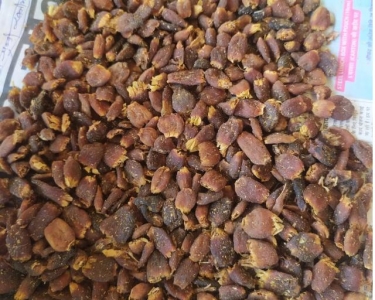Live animals
Couldn't find the product you want?
Fill out this form to request the product.
Products You May Like
Export from Anguilla
Anguilla is a small economy, being the world's 208th largest exporter. The country possesses few natural resources. The major economic sectors of Anguilla are luxury tourism, lobster fishing and offshore banking. Anguilla's economy depends on the external economic conditions, because of its small territory and reliance on foreign direct investment. Despite all these conditions, economic growth in Anguilla is possible.
The main industries practiced in Anguilla are boat building, financial services, fishing and tourism. The agricultural sector doesn't play an important role in Anguilla's economy, as the country has thin arid soils, which are unsuitable for the cultivation of crops.
Regarding, Anguilla's exports, it should be mentioned that in 2008, food products, drinks, live animals and tobacco accounted for 41% of all exports. Machinery and transport equipment, in the same period, represented 19.7% of the exported goods. Other important exports include liqueur, spirits, rum, solid cane, beet sugar, lobster, fish, salt, cement, concrete blocks, motor vehicles, centrifuges.
Guyana, the Netherlands Antilles and USA, Azerbaijan, Indonesia, Saint Lucia, Belgium and Luxembourg are the major export partners of Anguilla.
Import to Anguilla
Anguilla's major sources of revenue include contributions from emigrants, offshore banking and lobster fishing. The most of the country's inhabitants are employed in the field of commerce – 36%, and the service industry employs about 29% of the labor force. Agriculture isn't very developed on the island, however a few crops are cultivated (mostly tobacco and vegetables). Cattle raising also exists as an economic activity.
It should be mentioned that in recent years, the major objective of the Anguillan government was to develop the country's offshore financial sector, which has grown consistently. Anguilla also aims to obtain 15% of its energy from solar power in order to cut imports of expensive fuel. The diversification of the economy would be a good solution for Anguilla's economy to stop relying on one main source of revenue.
Regarding Anguilla's imports, it's worth noticing that they increased on average by 27.6% in recent years. Imports of manufactured goods account for 18.3% and 16.7% represent transport equipment imports. The major imported commodities include refined petroleum, motor vehicles, recreational boats, aluminium structures, construction materials, furniture, wood, food.
The US, the UK, France, Japan and Barbados are the island's major import partners.
Check Out Export Portal: A Site That Lets You Export Live Animals
If you are looking to buy and export animals, then you came to the right place! Export Portal's Live Animals Department is an online marketplace for sellers and buyers of any livestock. We work to contribute to the live export industry, which brings many economic advantages and other benefits to countries that rely heavily on livestock imports. In fact, in just Australia alone, this industry contributes roughly $1.8 billion to the country's GDP each year. Moreover, it also ensures food security while helping people meet their protein needs as well.
Finding the Right Animal
We feature a wide range of pigs, cows, sheep, goats, horses, rabbits and hares, turkeys, bees, and fish for sale. An increasing number of American, Australian, German, South African, Argentinian, and Italian farmers and companies are advertising their livestock with Export Portal, portraying just how effective and helpful our site is.
To help customers make more informed purchasing decisions, our site lets users narrow down their searches by the age, breed, and sex of the animal. If you are feeling hesitant to shop on our site and want more detailed information, make sure to check out our seller ratings and reviews, which are written by our buyers and customers. We also collaborate with hundreds of trusted international shipping companies that arrange the transport of all kinds of animals and birds to any country in the world.
Online Shopping is More Simple with Export Portal
Export Portal is an ideal site for everyone who is an avid online shopper. Our convenient options make it easy to find and buy whatever you are looking for. Our seller network from all over the world has everything you need, and our customer support team will make sure you can find it. Our wide assortment of products will be sure to provide you with the best shopping experience. Make sure to check out our site and items today!
Customs requirements of Anguilla
Anguilla Customs Contacts
Website: http://www.gov.ai/
Address: P.O. Box 60, Secretariat Ground Floor East, The Valley, Anguilla
Telephone: 264 497 2513
Fax: 264 497 5483
Anguilla is a British overseas territory situated in the Caribbean. It lies east of Puerto Rico and the Virgin Islands and directly north of Saint Martin. Anguilla is known as a popular tax haven, as it has no direct taxation on individuals or corporations. The country is a member of the Caribbean Community and Common Market (Caricom/associate), Caribbean Development Bank, Organization of Eastern Caribbean States (OECS) and other international organizations.
Import tariffs
Import tariffs vary between 0% and 20% according to the products. Here are some examples:
- fish, crustaceans and other aquatic invertebrates – 15 %
- dairy – 5-20%
- vegetables – 0-15%
- fruits and nuts – 0-5%
- coffee, tea, spices – 10%
It should be mentioned that imports and exports in Anguilla are exempted from VAT taxes.
Import regulations
According to the Anguillan Customs law, all imported products require a declaration to be made by the importer. This declaration can also be made by an authorized agent of the importer.
To make a declaration, the importer/agent must access the Asycuda World (see the link below). Using this tool, the importer makes the declaration electronically, registers and pays the duties.
Plant Importation
Importers of plants, plant parts, plant products, seeds and other products of the kind must complete an Application for Import Permit from Agriculture Department. The Permit must include the following details:
- country of origin, name and address of importer, name of produce, quantity and weight, mode of transport, date of arrival;
- applications must be submitted at least one week before the arrival of the products;
- import permits are valid for one consignment only;
- all imported agricultural goods must require by a phytosanitary certificate issued by the country of origin;
- all goods must be inspected upon arrival by the plant quarantine officer;
- the plant quarantine officer reserves the right to reject or accept the produce based on its condition;
- all imported products must be pest and disease free, as well as free from soil.
Animal Importation
An Application for a permit should be completed for the importation of the animals. The Application should include the following information: age, sex, color and breed, port of entry, time of arrival and carrier.
The Import Permit must be presented to the Customs Division at the port of entry and must be accompanied by a certificate proving that the animal was vaccinated against rabies within the six (6) week period immediately preceding arrival in Anguilla, and a Certificate of General Health issued within two (2) weeks prior to arrival.
Documents for import
- Transport documents
- Commercial invoice
- Simplified declaration
- Import licenses and permits
- Health and phitosanitary certificates
Asycuda World Portal
http://www.gov.ai/customs/asycuda.php
Sources:
http://www.gov.ai/customs/procedures.php#
http://www.gov.ai/customs/plantimport.php
http://www.gov.ai/customs/animalimport.php
http://www.gov.ai/customs/docs/AIFullTariff2.pdf





